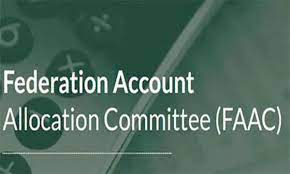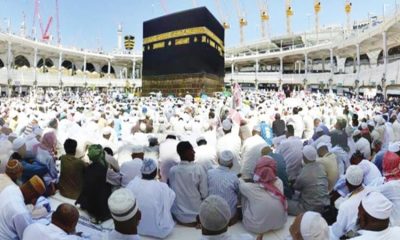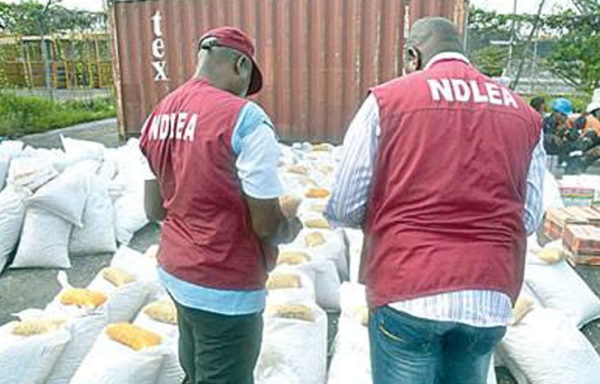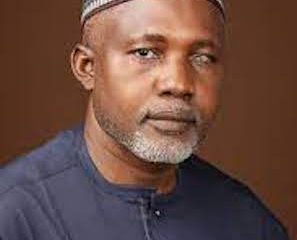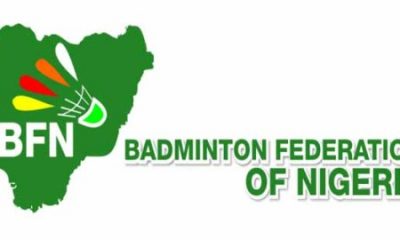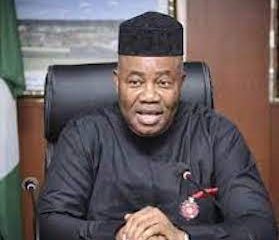INTERVIEWS
FG Must Account for Unredeemed Pledges to Benue IDPs- Hon Gbillah
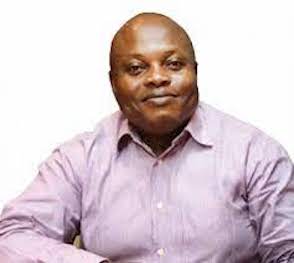
Rt. Hon Mark Gbillah, is the representative of Gwer/ Gwer West Federal Constitutency in the House of Representatives. The outspoken Legislator had presented a petition on the floor weeks ago on the plight of Benue IDPs of the floor of the House. In this interview, Gbillah speaks of the incessant attacks on his constituency by some suspected Fulani Herdsmen and the N10billion pledge by the Federal Government for rehabilitatiom of the displaced persons in Benue state among other topical issues in the polity.
He spoke with Defence Correspondent, Gom Mirian. Excerpts.
Your constituency, Gwer-west unfortunately, has become the epicenter of Herdsmen attacks in Benue State, as a representative of your people, what are your insider’s view concerning this viz- a – viz government efforts to curb these attacks?
Since I joined the House in 2015, this has been a recurring thing in my local government and my constituency.
These serious attacks with seemingly no solutions and no intervention by the security I have not relented in presenting this issue to the House floor severally and at one instance, the Benue State governor was even invited at my instance on a motion that I raised, where this issues were intensively discussed, which translated into the creation of more operations including Operations Whirl Stroke, the existing operation in the state at the moment.
There are certain issues I need to highlight that are pertinent where the government seems to be playing ostrich with regards to the fact that there are states where these Herdsmen sojourn and from where they come and carry out this gorilla – like tactics attacks on the members of my constituency and that state in particular is Nasarawa State. This is a very critical issue that the Federal Government has refused to address the fact that they have not in basic rules of engagement in the military.
Sometimes, I wonder if this is still the Nigerian Army that everybody globally herogises that have have curbed uprisings in the West African and other African regions and have gone and performed commendably in other peace keeping operations around the world.
I wonder because, they know the location where these people are, why have they not located another military space in that place in Nasarawa State where they come from? why have they not permanently erased these locations from the face of the state so this people don’t dwell there?
That is one critical issue about why these things still persist.
As much as I commend operation Whirl Stroke for the efforts because for a certain period there were samblance of inactivity with regard to these attacks and our people had started to carry out their agrarian activities, which for years were unable to do since most of them are in the IDPs.
But we have also been inaudated with reports of killings by suspected military men by refusal of the military men to respond, there are allegations that the military men actually tip-off these people and is important that I raise an issue for Nigerians to know.
This is very recent occurrence, about a few days ago, in the morning of that day, military men from 72 Battalion in Makurdi went to the house of a retired Justice Agagbe from my local government and attacked his premises, broke down his doors, physically assorted him and ransacked his house, looking for his son who was a member of a vigilante group and the allegation is that they believed the son was hoarding weapons.
Now, one starts to wonder when has the military been given such responsibility by our constitution?
As far as I am concerned, this is part of the suspicions the Benue people have about the intention of the Fulani nation and this administration.
Because we have been hearing that the leadership of the Army in that particular Battalion of military formation is of Fulani Extraction and they seem to be more sympathetic towards the calls of their kinsmen instead of carrying out their constitutional duties.
This aged 80 years old man that was assorted had made formal report to police and as we speak, there has been no action taken about it.
Do you forsee the locals resorting to self defence in the light of seeming in action or the unsatisfactory response from the military operatives?
Yes, it is important for us to know that in our status as a country self defence is permitted and in Benue State have not only resorted to our federal laws but we have resorted to and have to go back to the law that emanented about fifteen years ago that the Benue people have in unionsom agreed that we are going to set up a volunteer group and vigilante outfit across the entire state that will be armed legitimately.
That is one of the provisions in the law that allows for Licensed arms of a specific type that is being licensed by the commissioner of police and then licensing den guns, which is licensed by the local government chairmen.
So this is something that has to do with a state, we have now finally come to an agreement to implement and the names of our young people across the state have been gathered and then specifically in that community where they have been affected, we are ensuring more recruitment and more emphasis on those who are directly affected so they provide the first line of defence for the state, we are going to empower them in every legitimate manner necessary in accordance with the law.
These are concerns that we have and obviously Benue State is left with no option but to resort to self help. This of course emphasizes the call for state police and other issues that you have heard from the southern governors’ resolutions.
The petition you raised at the House, it generated alot of furor around the country, eventually you presented the petition, what is the outcome of it?
The petition right now is going through the processes , it has been submitted to the committee on public petitions. It hasbeen fortunately accepted by the speaker, it is now with the committee on public petitions and we are now scheduling it for public hearing.
What has caused some delay in my own opinion , though the process is still ongoing is that I don’t want it to go the way of several petitions but we are currently finalizing plans to have a proper documentary so it is documented evidence of situation with interviews of the IDPs, videos of them so that this will be presented before the committee because most members of the committee may not have the privilege of going there to see for themselves but if they have this evidence it will give them first hand knowledge of the situation and conditions this people are living in.
We will want to ensure during those hearings there is proper media coverage, we don’t want anything to be swept under the carpet. You see the manner in which they were apparent desire to prevent me from presenting that petition, obviously, because of some bigoted and ulterrior motives for whatever reason for those who want to incapacitate the Tiv nation. And this is something that we will not allow.
So this is the current state of the petition and very soon the hearing will commenerce.
Apart from the measures taken by the state government and the community members on the issue of the vigilante for Defence, what in your opinion needs to be done to end this crisis by herders?
One of the first things that need to be done that the global community has even helped us to identify globally the UN and other international agencies have already identified Herdsmen as terrorists as one of the major terrorist groups in the world but unfortunately, it is alarming that our government, the APC government in Nigeria has refused to agree and to label this Herdsmen for what they truly are (terrorists).
So one of the first things the federal government needs to do is to immediately and publicly label this Herdsmen as terrorists. They were quick to proscribed IPOB which on record up to this point if they have killed any, haven’t killed anything near what this Herdsmen has done for several years to this country and yet this government was quick to label them terrorists.
They need to identify and properly label this Herdsmen as terrorists group because when that is done the military and other security agencies can engage them properly.
Unfortunately, for us our constitutional provisions put powers for proper security in this country at the center, so it is important that our military and other security agencies employ the relevant equipment. we need to have drones, we need to have proper surveillance equipment that they would deploy in the relevant locations to track, identify and properly deal with these herders.
It is not possible to tell us they cannot track the movement of these Herdsmen, it is something that can be done, technology exists all over the World, we are not inventing, all we have to do is to procure the relevant technology and that needs to be deployed.
One of the things about the rules of engagement which for example the UK employs is whenever there is any trouble and restive spot you will see they will move their aircraft carrier or put a base in that location so necessarily the trouble spots in Benue are known the military needs to begin to employ if they don’t have enough responses more personel to enable them deploy to severe areas that have permanent bases there not temporary until this issues is resolved and this people are driven out of our country.
Unfortunately for us we don’t even realize we are at war, the government has admitted, the president himself had admitted that these are people coming into the country from outside and then why hasn’t he declared the state of war against them?
And then of course, the NSA has already exposed the corruption in this administration, although, he was quickly attacked by the administration to try to retract his statement but it was already out there.
He told us they cannot local equipment worth trillions of naira that are supposed to have been procured to fight the insecurity in the country, that is another problem we have, our military men do not have the right equipment to engage this people, that is another thing that urgently needs to be done and obviously the government should realize once again to deploy their best equipment to the frontline and like I rightly said the epicenter of the attacks is in Benue that is where their best equipment and personnel should go.
Unfortunately, they seem to think Boko-Haram is the main challenge but can they now see from the southern governor’s forum pronouncements that the main problem is the Herdsmen who have now have agenda it seems to take over this country in a subtle manner in taken over our land, which we will not allow, these are fundamental issues that need to be addressed.
Obviously, there is a lingering issue of the IDPs, this is another problem for the umpteenth time, we are asking President Buhari and his vice president Osinbajo that where is the N10billion, the Vice President promised us in Benue on May 18, 2018?.
He made a categorical statement that N10billion had been approved for the resettlement and the rebuilding, reconstruction of the homes of the IDPs in Benue and other people that have been displaced, till date we haven’t heard no record of that and this is something we are going to hold against this administration until it is done and then, if it is not done then this will also be one of the things they have failed to do and a promise they have failed to keep, which does not inbuilt confidence in Nigerians of being able to trust whatever this administration says.
This was publicly announced and nothing has been done about it, or has the money been misappropriated? Recently, the president made a statement in his recent speech during Sallah about trying to make sure the people who were displaced go back but it is curious and Nigerians need to be worried that the president made no mention about the middle belt and the Herdsmen that are attacking the region.
He talked about the south – South, Boko-Haram in the North – East and North – West but did not talk about the Herdsmen crisis going on recently. Mr. President, that is a very questionable pronouncement on your part, permit me to speak to Mr. President, this is unacceptable, and it shows obvious bias towards that issue.
I don’t believe the president didn’t remember that there was a Herdsmen crisis and there are things he has not told us as Nigerians. Is he still the patron of Miyetti-Allah? These are questions we are asking, you can see where Channels Television will be fined for playing a video of an IPOB member but Miyetti-Allah has been speaking on Channels for several years but they were not fined. These kinds of obvious bias and nepotism is only going to divide and break up this country and its unfortunate and we demand from the members of the national assembly from the north central for the Middle – belt.
We demand that the president addresses categoricallyzthe issue of the Herdsmen in our areas and resettlement of the IDPs in that area and not behave as if he was not aware in his last statement, it is totally unacceptable and does not show leadership on his part.
What is your take on the 10 point resolution raised by the 17 Southern Governors Forum ?
I want to commend the 17 governors for eschewing partisanship and speaking in unionism about issues that finally they come to realize that affects all of us.
If you remember few years ago, when our governor, Governor Samuel ortom was crying and rising alarm about what was going on and lots of them behaved as if they were unbelivios of what was going on because it has not affected them yet.
Alas, now every state in the south is now affected and finally they have come up with a decision to that regard though lately but it is commendable.
And obviously, for some of us we have even made a pronouncement as the Northern minority members in the House of Representatives, alligning ourselves with the entire resolutions of the southern governors, we believe that is the way to go because this should be a blueprint that Nigeria should begin to adopt and maybe make adjustments so that will help, guide us in our country moving forward, otherwise, there is no way our country will stay united if this administration continues in the manner in which it is doing at the moment.
Which areas can you say your representation has impacted your constituency?
As a representative of my people, fundamentally its about raising up the issues of my people for necessary intervention. Obviously, representation does not stop there, they are other issues that have to do with enactment of laws, intervention in the affairs of the people, as well as issues of delivering dividends of democracy that is bringing in federal intervention in your constituency
I have been able to intervene in the issue of members of my constituency who have had issues of wrong termination of their jobs in Federal agencies, who have been reinstated in that particular regard.
In regard to intervention from the federal government, there is a project – Makurdi- Ankpa – Adoka road that was lying delapidated for upward of 30 years, no intervention, no action by the federal government and that is one of the projects I personally ensured has now been awarded and work has commerced in earnest.
This is one of the major interventions in my constituency and that road traverses four federal constituencies and I will commend the Minister of Works, Babatunde Fashola for his willingness to respond and of course the leadership of the 8th National Assembly, who ensured the project was captured in the budget.
And there are several other projects I have been able to do in my constituency such as bridges, I provide opportunities for members of my community to study abroad through scholarships, we have also had intervention with regard to agricultural enlightenment among others.
interview
The Secret to Raising Children with Special Needs Without Exhaustion
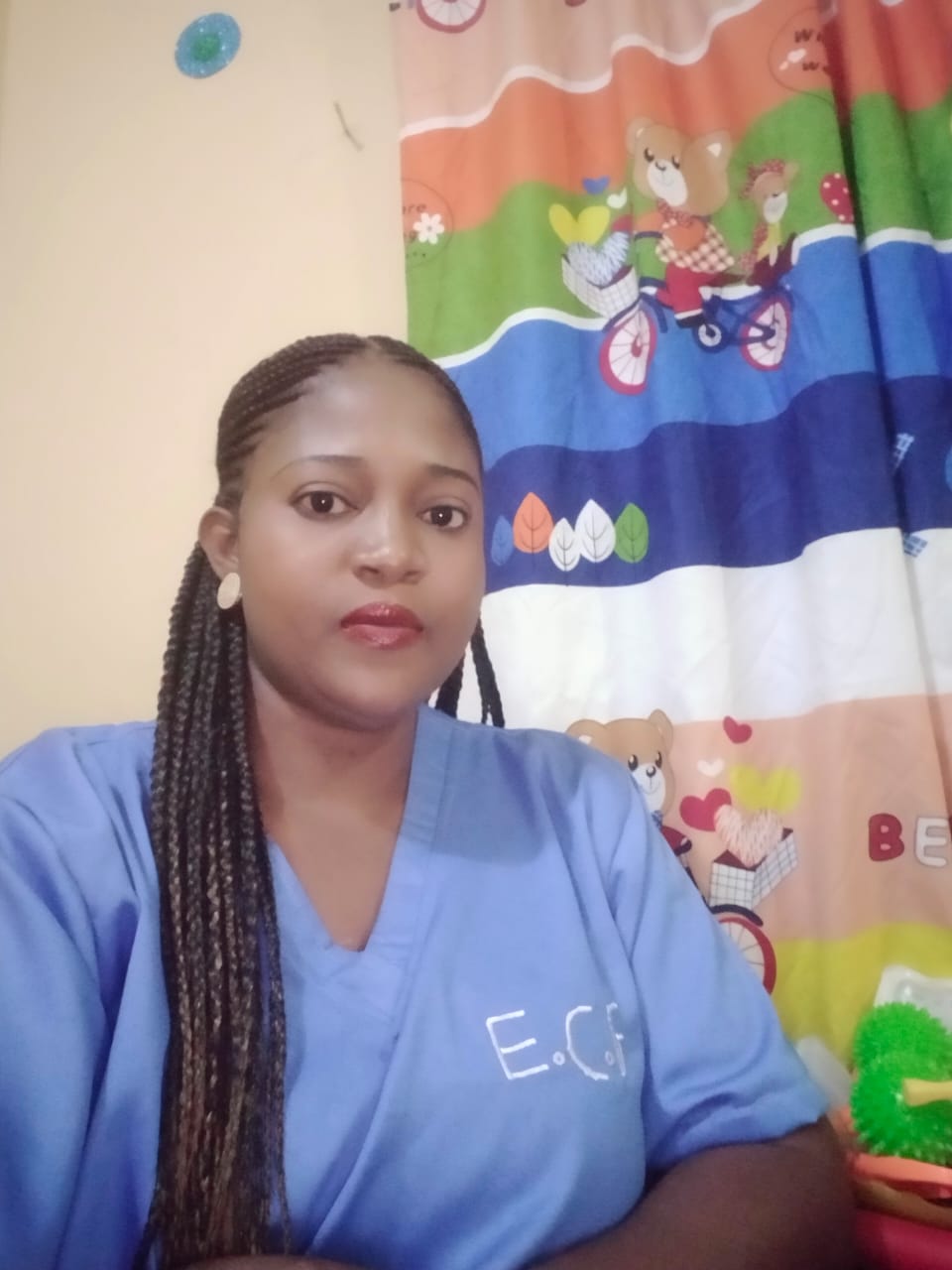
Raising a child with special needs in Nigeria can be extremely tiring for most parents. They also have to deal with strange ideas and theories about what caused their child’s condition, which leads to being excluded from society.
In a recent interview with DAILY ASSET News Editor, Prosper Okoye, the Executive Director of Elsali Care Foundation, Goodnews Emeka-Agadah, discussed the severe consequences faced by these children and shared her secret for managing the stress of caring for them, among other topics.
What is your foundation about?
Elsali Care Foundation was born out of a passionate drive that began during my national youth service days.
At that time, I encountered parents with children who had special needs, and many of them were unaware of their child’s condition or the care they required. Consequently, they would confine their children at home, awaiting their eventual death.I was able to offer assistance in some cases due to my familiarity with the conditions affecting such children, as I had a cousin who had a child with cerebral palsy, a kind of special need. Regrettably, society has yet to comprehend the distinctiveness of these children. My cousin lost her marriage due to her child’s condition, as people attributed the child’s condition to her own wrongdoing, claiming it was retribution catching up with her.
After completing my service, I joined a non-governmental organization that catered to orphans and vulnerable children, but they provided no support for children with special needs.
Upon observation, I discovered that there are numerous such children in society, and their parents are struggling. Many of these parents are unaware of their child’s condition or where to seek help. It was at this point that I told myself, “I possess significant knowledge about this condition, so let me step in and assist them.” That is how the foundation was established.
We advocate for these children since they are vulnerable and unable to advocate for themselves. We are consistently present for them, providing them with protection. Our primary focus is helping these children realize their potential.
Because we’ve known that when they receive proper care from an early age, there can be a significant improvement that enables them to maximize their potential and lead fulfilling lives.
We offer them clinical therapy, educational support, occupational therapy, physical therapy, and behavioral therapy.
We also aim to incorporate vocational support, as it is through this avenue that they can acquire skills to become more valuable members of society. However, currently, we do not possess the capacity to do so.
How can we identify a child with special needs?
Special needs is a term that encompasses both physical and neurodevelopmental disabilities. In our foundation, we primarily focus on children with neurodevelopmental disabilities, such as autism, Attention-deficit/hyperactivity disorder (ADHD), learning disorders and others.
In more concrete terms, although very unfortunate, society often perceives children with special needs as unintelligent because some may have difficulty speaking, while others may exhibit hyperactive and destructive behaviors.
Regarding physical disabilities, we refer to children who are physically impaired, deaf, or nonverbal.
How do you support orphans since you don’t have a home in your facility?
Apart from the special school center, the foundation takes part in community programs. During these programs, we come across some children who, just by looking at them physically, we know need help. And when we dig deeper, we find out that their parents have passed away, and they live with their relatives.
These are another group of children we work with. We assist them through the relatives they live with. For those who are not attending school, we help them get back into school.
Honestly, when it comes to providing for their nutritional needs, I must say we do very little due to lack of funds.
They appear undernourished, but in our small way, we provide them with some provisions through their caregivers because you can’t talk about children without considering their caregivers.
What has the journey been like so far?
We’ve been working behind the scenes since 2013, and we have many memorable success stories. Actually, every child we help is memorable because when we first meet them, their situation is very sad.
Sometimes it’s so bad that we can’t help but cry, especially when we see their parents’ tears and frustration.
Most parents tell us that their child was born healthy, just like any other child. But around the age of one or two, the child starts losing all their thinking and learning abilities.
The parents feel very frustrated and wonder if it’s some kind of magic or curse from their village. But after talking to them, they start to understand over time.
Despite the financial burden and surprisingly, the negative attitude from the public, we keep going because of the many successes we’ve achieved over the years.
For instance, when we go to some places to raise awareness about this condition, we often face rejection because people think these special children don’t belong there.
But they don’t understand that other children, in fact everyone else should learn how to relate to and treat children with special needs.
These children face discrimination from their own relatives and other children who should be their friends.
Some schools don’t want to accept them, and even when they do, they keep them separate from the other children.
We object to this unfair treatment and try to make people understand that they need to think like the special child does to understand why they act the way they do.
We have an amazing story of a 15-year-old child with Down syndrome. When he first came to us, he couldn’t do anything. We started helping him by teaching him to use the toilet because it was so bad that he would eat his own waste if left alone.
We also did many other therapies with him, and within just a few months, he started improving some of his behaviors. We even managed to help him stop using diapers.
There are other numerous success stories like this one. Indeed, just knowing that we could help a child and ease the burden for their parents brings us a lot of happiness and fulfillment.
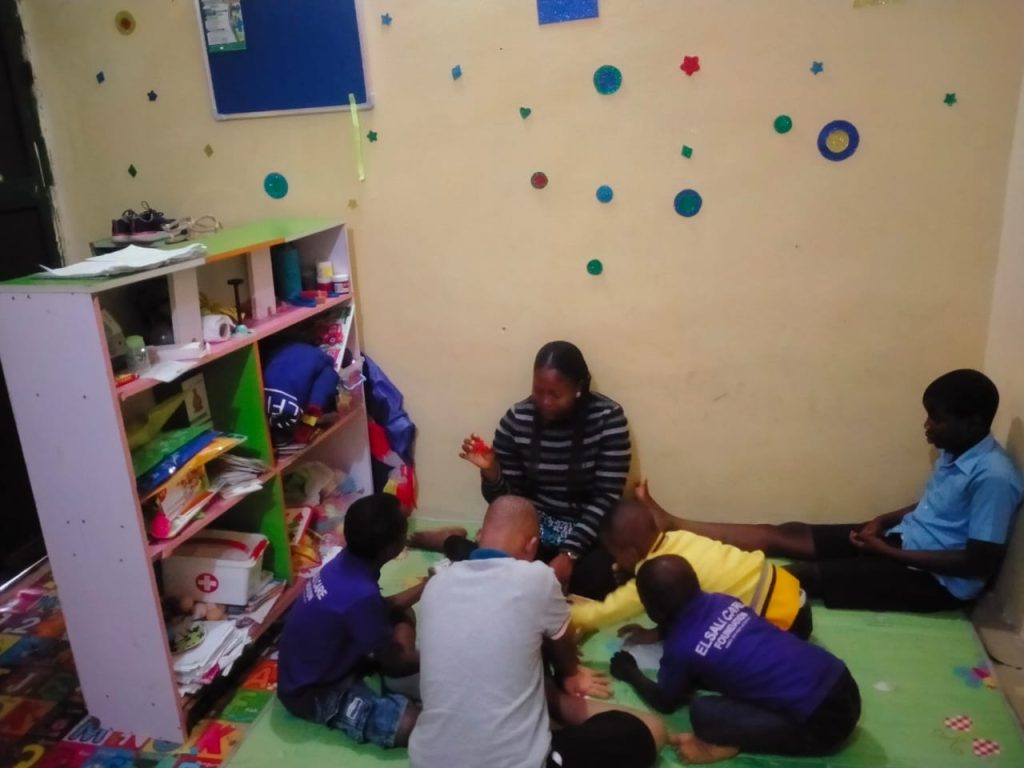
What exactly could cause a child who is born without any issues to experience regression?
It is a neuro-developmental issue. It’s similar to when we have malaria and experience certain symptoms. For some children with autism, we notice these symptoms, which we refer to as red flags, as they grow up.
It is a condition that exists within them and influences their behavior, not something caused by external factors like their village people.
Some regressions can be attributed to a lack of essential vitamins or the presence of excessive mercury in their bodies. Others may be linked to low levels of certain microorganisms.
While ongoing research is being conducted, some regressions can be traced back to genetic conditions.
Additionally, problems during delivery, such as improper handling or prolonged labor, can also contribute to regression. The age of the parents can also play a role. Older parents have a higher likelihood of having a child with Down syndrome.
How do you cope with exhaustion while taking care of these children?
The issue of children born with special needs is of utmost importance to address as a matter of public concern. Approximately 10 out of every 50 children born each year are likely to have some form of special needs.
Furthermore, it is expensive and challenging to solely provide care for these children, even for parents with substantial resources.
We face numerous challenges as an organization, but the primary one is the lack of public awareness, which leads to stigmatization.
We require assistance in raising awareness to inform the public that these children with special needs are just as human as anyone else. They have emotions and experience pain.
Additionally, there is a need for improved implementation of policies by the government. While laws and policies exist to prevent discrimination, there is a lack of mechanisms for effective implementation.
Furthermore, we lack sufficient personnel in this field. Several individuals have come to work and volunteer to help the children, but they often cannot stay due to the demanding and strenuous nature of the work. In some cases, it is because the remuneration is not adequate for them, but we can’t help it because of the unavailability of funds.
For me, what prevents exhaustion is the love I have for what I do. If I were not motivated by financial gain, working with children with special needs would still be a job I would choose and strive to excel at. I see them as my own children.
However, I cannot do this job alone; we need stakeholders to assist us in extending these services to rural areas and other hard-to-reach places.
We require funds to train and motivate individuals to join us in the mission of reaching out to these special children, as it is not their fault that they were born this way.
It is also crucial to train parents on how to raise these children.
We must raise awareness in society to create more inclusive opportunities in schools, workplaces, and all other spheres of society.
We need more partnerships.
Children with special needs can grow up to become professionals, although they may lean more towards artistic pursuits and display greater inventiveness. Many celebrated musicians and footballers, such as Ronaldo, were actually children with special needs. Therefore, early interventions are crucial as the brains are still developing.
INTERVIEWS
Japa Syndrome: Reflection on the Current Situation – Dr. Emeka
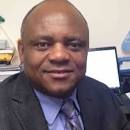
In light of the soaring cost of living as a result of petroleum products’ hike in price and other economic woes, many Nigerians have embarked on a quest to leave the country in search of greener pastures abroad. In this interview with Prosper Okoye, the news editor of DAILY ASSET, migration expert Dr.
Emeka Obiezu discusses the intricacies that drive the Japa syndrome. Dr. Emeka, who is also the Chairman of the Civil Society Migration Network (CSOnetMADE), sheds light on the realities surrounding Nigeria’s migration landscape.DAILY ASSET: Japa has become a daydream for most people. How has this impacted migration in Nigeria?
Dr. Emeka Obiezu: It is evident.
The entire migration trend revolves around sustaining one’s livelihood and fulfilling their dreams. We refer to this as the driving force behind migration. The primary reason people leave or desire to leave is because they are living in an unfavorable environment and they believe that another place offers better prospects and the fulfillment of what they lack in their current situation. Nigeria has consistently witnessed a migration trend driven by economic motives, such as the lack of opportunities, unemployment, job insecurity, and even threats to personal safety and property. This is not unique to Nigeria; it is a common feature in migration trends worldwide. Out of the 281 million international migrants, 169 million are labor migrants who move primarily due to economic reasons. This means that there are either no immediate job prospects or their current employment is unsatisfactory or lacks job security. It could also involve changing jobs that motivate their move. The trend suggests that if the economic conditions in their home country improve, the migration curve will decline. However, if the opportunities remain stagnant, the graph will also remain stable, and if the lack of opportunities increases, the migration outflow will rise accordingly. Therefore, the concept of “japa” is merely a way of encapsulating the prevailing economic conditions in Nigeria and the lack of opportunities that drive the migration curve upward. Although there are other factors involved, they are intertwined. For instance, the anticipation of the outcome of the 2023 election has already instilled fear and anxiety, leading to uncertainties about the future for many Nigerians. This intensifies the desire to find a better place before the situation worsens or they become trapped here. Unfortunately, the outcome of the election did not improve matters. The implications of the political landscape reverberate through the economy. As you can see, even someone who had no prior plans to travel suddenly wants to leave this week, as the resources they have, including transport fare, are no longer sufficient. This has a ripple effect on every other aspect of life.DAILY ASSET: What could be the implication of this trend?
Dr. Emeka: There are so many things that could come out of it. One is to look at it in terms of nation-building. If we have a high percentage of workforce outflow, then it would adversely impact the nation-building of the country in terms of jobs and quality of job. What is really disheartening is that the rise in the flow rate is higher for skilled workers and professionals. Like I heard one of the doctors’ associations demanding the new president to declare a state of emergency in the health sector, and that is just them. The labour union is on the street, and so many other sectors are also crying of losing their best. One of the presidential candidates use the term from consumption to production, so I don’t know if the skilled work population leaves whether we would achieve production against consumption. Well, the one sitting now did not campaign on that, so that may not be his concern. There is always a flip-up from the other end, Nigeria benefits so much from the diaspora engagement. We hope, this is a question of hope because diaspora remittances translate to the desire of the diaspora to contribute to nation-building and the availability to do that. We have had a good report in terms of how our diaspora is interested in giving back to the community, and so if we still maintain over $23 billion as our inflow from our diaspora, maybe this number of people that are going out may increase that poll in terms of higher remittances coming back home. If the diaspora also ventures from their different field it can also reflect in nation-building in such a way that it does amount to a complete loss.
DAILY ASSET: How would you evaluate the Nigeria Migration System?
Dr. Emeka: Our lives as migrants and actors of migrants are characterized by dynamics. We live in the moment; in other words, today speaks for itself. Not that we have cut off completely from our past, but we use today to judge how the past was utilized well, and whether the present is active enough or the future is venturing at all.
Having been in the migration sphere in the last few years, I could, in fairness, identify progress in the management of migration in Nigeria. In other words, there are more conscious efforts by actors to come together. The coming together of different stakeholders to think through what could be the best options for situations around is helping us to gain more insight and experiences from people who have worked in different spaces of migration outside our own space. It also helps us to squarely address the issues at hand. Nigeria has also come up with instruments to help in the management of migration. The policies that were made before 2018 are being reviewed, and some action plans have been developed for their implementation. Some have even gone a step further by establishing memoranda of understanding and operating procedures that would guide implementers. Migration governance instruments are a key element in managing migration. When we have all those instruments that we can fall back on, it helps both the implementers and the advocates to have something to refer to, either to push for more things or to measure what has been done. So, in that direction, I would say yes we have made progress. But, have we done enough to say that we have our migration issues under control? Not yet. I think what needs to be desired in that direction is what I call committed ownership of the migration issues in terms of framing the question, designing the plan, and following through with the implementation. Somehow, it would be fair to say that our migration governance is reactive. The reason I say that is because what we do now is spurred by what others do, particularly international partners, either governments or international organizations, who raise issues and we follow suit. For instance, the major trend in migration governance up until now has been the issue of return, readmission, and reintegration. This is because the Western world is trying to clean their environment of what they call unwanted persons, that is, migrants who are in irregular status. Because they want to push them away, they get in touch with us saying they want to return our people and ask what they should do to accomplish that. Then we tell them to design a package that when they come back, it will help them reintegrate into economic activities and others. They buy into it for their own interest and begin to design various projects and programs around it. That is what we have been pursuing for a number of years now, which is why I can say that it is reactive. Another reactive aspect of it is when our people are stuck in Libya or some other place, and then we rush in to see what we can do about it. However, we could have taken proactive migration governance that looks at the development issues that are the root causes of this movement. We have not done enough because it requires political will, which has to translate into the financial budget. We have experts who design policies, but they end up in the political space because there is no political will to implement them. Somebody says political will is simply defined as putting your mouth where your money is or putting your money where your mouth is. In other words, if I say this, there is something to back it. I would want to see an intentional act done by Nigeria’s migration governance, to say in the next quarter, we are going to do intentional advocacy or policy that will align with the government’s national development policy plan to say, “Do this or do that,” and we can observe the number of people it would help prevent from migrating. For instance, we can consciously create specific job opportunities targeting demographics that we know are prone to migrate and provide them with those opportunities. By doing so, we can assess how many would benefit from it and how many would choose not to leave. If we begin to implement such measures, we can say that we are holding our migration governance to a radical, proactive approach that allows us to design it instead of merely following the fallout from other places.
DAILY ASSET: There appears to be a deliberate effort by certain countries to keep Nigerians away from their country. What are your thoughts on this? And how can one leave wisely, as you always advise?
Dr. Emeka: I can explain that with a simple example. If you want to visit a friend, what would be the wise thing for you to do if I ask you that question?
DAILY ASSET: I don’t answer questions (chuckles).
Dr. Emeka: Alright. The wise thing to do is to call up your friend and confirm if they are available. Then the person will inform you how to get to their house and any specific instructions, such as having dogs in the house and how to ensure they don’t come after you. You would also discuss the duration of your visit and the purpose of your visit. All these details should be discussed and agreed upon before you embark on your journey. That is the right way to visit someone, even if it is a family member.
Migration is a human right for every person. You can move whenever and for any reason you want to move. However, entering the place you are going to is also the human right of another person. They need to know who is coming, what they are coming to do, and how long they intend to stay. Therefore, for this action to be completed, there must be a relationship between the person who is moving and the person receiving them. That is why we advise that the wise way to move is to obtain all the necessary documents that will enable the migrant to do so legally and safely.
So, how do you begin? Firstly, you need to identify yourself by obtaining a passport. With your passport, let’s say you, as a Nigerian, want to go to Country B. In order to enter Country B, you need to inquire about the requirements set by Country B for entry and the purpose of your visit. Based on that, they may inform you that you need a work visa, for example. To obtain a work visa, you will be given the requirements, and once you fulfill them, you can obtain the visa at the embassy of Country B.
However, having a visa to enter the country does not automatically guarantee your entry. The immigration officer at the border needs to confirm your identity and the purpose of your visit. They may also specify the conditions and duration of your stay. For instance, if you are given a 30-minute stay, it is your responsibility for the sake of your dignity and credibility to leave once the time is over. If, for any reason, you decide to overstay, thinking that the place is comfortable and you prefer to stay a bit longer, you would be violating the agreement and entering an irregular status.
The issue of a deliberate effort to prevent people from entering certain countries is one of the reasons why irregular migration thrives. If I want to enter your country and you don’t want me to, I may be unable to obtain a visa or face harsh conditions if I do. In such situations, someone may approach me and suggest an alternative way to enter the country without going through those procedures. This creates opportunities for individuals engaged in smuggling operations. However, it doesn’t benefit anyone. It doesn’t benefit the country, nor does it benefit the migrant involved. It exposes the migrant to various dangers and makes it difficult for the country to manage its resources.
As migration actors, we urge countries and everyone involved in the migration issue to make the pathways for regular migration as accessible as possible. Furthermore, we appeal that for those who are already in a country and are in an irregular status, instead of detaining or deporting them, opportunities should be created for them to regularize their status. This approach preserves their dignity and enables them to contribute positively to their home country and help those they left behind.
DAILY ASSET: Are there strategies in place by the government or civil society associations to assist those affected by conflict and victims?
Dr. Emeka: One of the primary elements of migration governance is to protect migrants throughout the entire migration process, from their decision to leave to their eventual return. The human rights of migrants are of utmost importance, and we work towards ensuring their protection. This is because they are human beings and every individual’s rights should be safeguarded regardless of their status. There are several measures in place. For refugees, there is the 1951 Convention on the Status of Refugees that provides protection. For migrants, there is a convention on migrants’ rights and the rights of their families. The International Labour Organization has established labour policies to prevent discrimination and promote fair recruitment, among others. Nigeria has also signed international conventions and developed national policies and programs to protect migrant workers. One example is the establishment of NAPTIP (National Agency for the Prohibition of Trafficking in Persons). Their responsibilities include combating human trafficking, rescuing and protecting victims, and prosecuting offenders. Some instrumental policies include the National Migration Policy and the National Policy on Labour Migration. These initiatives provide opportunities for protecting migrant workers and preventing exploitation in various ways.
DAILY ASSET: How effective are these policies?
Dr. Emeka: The effectiveness of these policies depends on the individuals and entities responsible for their implementation. The challenge we face with policies is their execution, and this is not unique to Nigeria. It is a global governance issue. Some actors may argue that policies are put in place by the government but do not lead to any tangible outcomes. However, as advocates, we see these policies as a means to hold the government accountable. We persistently push for their implementation until at least one migrant receives the intended protection. To some extent, the Nigerian government is improving its efforts to protect migrants, particularly those who are returning. We are establishing bilateral relationships with other countries to ensure that there are no detentions, reduce deportations, and provide opportunities for voluntary return with dignity. Therefore, the implementation of these policies is gradually taking shape.
DAILY ASSET: The increasing number of returnees is a cause for concern. Does your organization engage in any initiatives to support their reintegration into society?
Dr. Emeka: The reason why numbers are highlighted in the media is because there is now a structured process in place for documenting and managing these returns. These efforts are aimed at organizing the return processes. Reintegration is a crucial component of the return process, enabling individuals who have completed a migration cycle to reintegrate into their local communities in a sustainable manner. The goal is to ensure that they do not face the same fears or economic and political pressures that compelled them to migrate in the first place.
This is known as sustainable reintegration, and it begins even before the person returns. They are made aware of the conditions in their country of return and are provided with orientation and available opportunities. These opportunities may include education, vocational training, and business training. We focus on both individual and community reintegration. Individual reintegration addresses the specific needs of each person and follows their journey until they are able to rebuild their lives in a sustainable manner.
Community reintegration involves bringing together a group and engaging the receiving community. The community plays an active role, designing and managing projects that address the needs of potential migrants and aim to reduce irregular migration.
As a civil society organization, our network comprises over 240 organizations, many of which are grassroots actors. These organizations implement various projects, such as providing shelters. In fact, the first male shelter designed to receive returnees was built by a member of our network, the Patriotic Citizen Initiative. Our members collaborate with the government based on their areas of focus. Some provide psychosocial support, guidance, shelter, family tracing, and monitoring of the reintegration process. Together, they form the return and reintegration working community within Nigeria’s migration governance framework. This collaboration occurs at different levels, including the federal level, monitoring and evaluation groups, and other governance structures that bring actors together to coordinate our activities.
DAILY ASSET: There have been allegations that shelter homes for returnees in Nigeria are poorly managed, and that individuals who leave these shelters are worse off than when they entered. What is your honest assessment of the shelter homes in Nigeria?
DR. Emeka: If these are mere allegations, they should be treated as such unless there is substantial evidence to support them. Therefore, I won’t comment directly on those specific allegations. However, it is important to recognize that institutions are operated by human beings, and there may be instances where human weaknesses such as neglect or abuse occur. It is crucial to ensure that both civil society organizations and government actors maintain oversight of these centers to prevent any form of abuse or compromise of the beneficiaries. From my personal experience, the shelter homes I have worked with have been exceptional in their operations.
DAILY ASSET: Alright, is the Nigerian Migration policy keeping pace with the current migration reality?
Dr. Emeka: The Nigerian migration policy was formulated in 2015, and it did not anticipate the specific circumstances of 2023 since it could not predict the future. Therefore, it served the purpose at the time of its creation. However, the policy was not designed to be permanent and unchangeable. It included provisions for review, allowing for adjustments based on evolving policies. The review process is currently underway, taking into account the present experiences and dynamics of migration trends. This review has involved a wide range of actors contributing to the development of different processes. The ultimate aim is to address both evident and underlying issues related to migration. It is important to acknowledge that as human beings, our actions are limited by our knowledge and vision. Nonetheless, we strive to do our best and ensure that our policies align with the realities we are encountering.
DAILY ASSET: Finally, what would you recommend that the new administration prioritize?
Dr. Emeka: My advice is for all Nigerians, whether it’s the government or individuals, to work towards building a better Nigeria. The current state of migration reflects the fact that Nigeria is not favorable for many people, and we cannot deny this reality. It is not unpatriotic to acknowledge that Nigeria is not favorable to many individuals. Having experienced Nigeria outside of the country, I have witnessed the longing and regret in the eyes of those who left and wish they had stayed. They left because Nigeria is not favorable to them. It is the responsibility of everyone, whether in private or public spaces, to contribute to creating a favorable environment. Key aspects to address include security, job opportunities, social life, social services, social insurance, and everything that ensures basic comfort for individuals. This is my suggestion and recommendation to all Nigerians. We cannot achieve this overnight, but if people observe a clear direction of progress, it will be encouraging and may dissuade some individuals from undertaking forced migration. Our ultimate goal is to make migration a choice, not a necessity. Currently, it is viewed as a necessity because people feel trapped and believe that if they don’t leave, they don’t know what will happen. We are desperately seeking any opportunity to escape the limited space we feel confined in.
Interviews
Next Plateau Governor must Epitomize Gomwalk – Tanko
As political activities leading to the 2023 General Elections are on top gear in Plateau State, Honourable Sati Tanko, Special Adviser to Governor Simon Lalong in this Interview with Jude Dangwam gave a hint on the kind of a new governor the state needs come 2023. He expressed worry that the State falling into the hands of political godfathers
Plateau State has seen different qualities of governors. What kind of Governor did you think the State needs come 2023?
Plateau State should be expecting a leader that will be tolerant, not fanatical about tribe or religion and must be a leader that will carry all the tribes in the state along.
I said this because this idea of minority, majority dichotomy has always shown it’s ugly heads in the various leaderships we have had over the years as a state and it has not done us any good.During the Chief Solomon Lar period when we were together with Nasarawa State, we didn’t see such division along tribes or religion, the dichotomy was about the Southern and Upper Plateau, there was no primodial sentiments as it is now.
Unfortunately, when Solomon Lar left power unceremoniously, because of the coup that toppled him, led by the current President of the Federal Republic of Nigeria President Muhammadu Buhari.
Plateau State has been devastated by a lot of crises. We have lost a lot of properties; we have lost our senses; we have lost our unity; we have lost the umbilical code that bound us as a people. Why? Because tribalism has eaten deep into the fabric of our politics. Religion has eaten deep into the fabric of our politics. We have preferred primordial interest to state interest that will unit us and build our economy.
The kind of leadership I will want is a combination of all the leaders that we had. We must have a leader with the spirit of J.D Gomwalk. Why did I say so? It is because the leadership spirit of late Gomwalk was to go out there and get. It was a competitive spirit that struggled within the then 12 states of the Nigerian nation.
That is why he brought the now University of Jos; he brought Benue Plateau Radio; The Nigeria Standard Newspaper among others. Yhat was the spirit. Solomon Lar came and had the maturity of tolerating all the various tribes of the former Plateau, covering the present day Nasarawa State.
Virtually everybody was contented. He was able to bring all the tribes through his programme of emancipation that he developed and he succeeded in emancipating all the downtrodden tribes of the Plateau. Those tribes that were suppressed by feudal lords were emancipated and that was maturity.
We had Ambassador Fidelis Tapgun whom I consider as a stateman in his own right. He was coming from the bureaucratic setting, as a Permanent Secretary who had worked with so many military governments in the country. So, he knew Plateau State inside out because he was a student of Solomon Lar and he was able to marry some of Lar’s programmes by building schools, and paying the SSCE registrations fees for students among other things in the larger Plateau State and people appreciated those programmes because of the poverty level at that time.
It got to the time of Joshua Dariye who was coming from the economic background as an accountant. He came in with his welfarist package and there was no hunger in the land, lifting up the standard of living of the citizens and I think he did well. The building and commencement of academic activities at the State University Bokkos is a credit to him, an institution that has raised so many people today.
When you talk of Baba Jonah David Jang, he is stubborn to some extent. Stubborn in the sense that he did not allow other factors make his thinking overlap. He remained focused on what he want to achieve. So those factors that wanted to not just pulled him down per say but to change his thinking saw him as a very stubborn leader.
Infact he is a man that came with a kind of programmes for Plateau people. But because of the forces that were and the insecurity that time, Baba Jang became a fighting bull with the Federal authority given the power that be at that time and they tagged him recalcitrant, but to the masses of Plateau State I think he did his best too because he was able to introduce a kind of nationalism that today you find it in the minds of natives of Plateau State.
Lalong came with his peace mantra and I think, to a greater extent he has succeeded because there are no more ‘No Go Areas’ as we had before now. Business and social night activities are going on now than it used to be. Although there are pocket of attacks in hinterlands but the Lalong administration has been able to stabilize the security situation within the Jos-Bukuru metropolis.
So, the kind of leader that I would want in 2023 is someone with the combination of all the attributes of these leaders that saw each playing his part in the best way he can. But above all, somebody that can bring us unity is important, somebody that can tolerate, somebody that can build infrastructures and bring out the best in our institutions in the way they function that’s the kind of leadership I desire.
I want a leader that will focus on peace, somebody who will address our education, the agriculture, somebody who will give the desired energy to our commerce by building our economy to make Plateau economically viable. We have always been considered as a civil servants state, so I want a leader that will come and change that narrative.
Across political parties, do you see such an ideal leader amongst the aspirants for the governorship seat come 2023 in Plateau State?
For the first time in the history of Plateau State, I can see from the array of aspirants both in the ruling party and the opposition parties who can bring this to bear. Because I can see that they have a very rich credentials, and to be fair to them, there is no one that can not govern Plateau State given their credentials.
What are your fears in the whole politicking leading to the choice of the ideal leader come 2023 considering the arrays of aspirants?
My fears is about the money bags! We don’t want money bags to hijack our political system. Where people will plant surrogates and psychophants or cohorts, at the end of the day they will be answerable to their godfathers and not the people of Plateau State. That’s my fear about the kind of leadership that is emerging. I rather want a leader that will emerge from the true reflection and the aspiration of the people of Plateau State!

